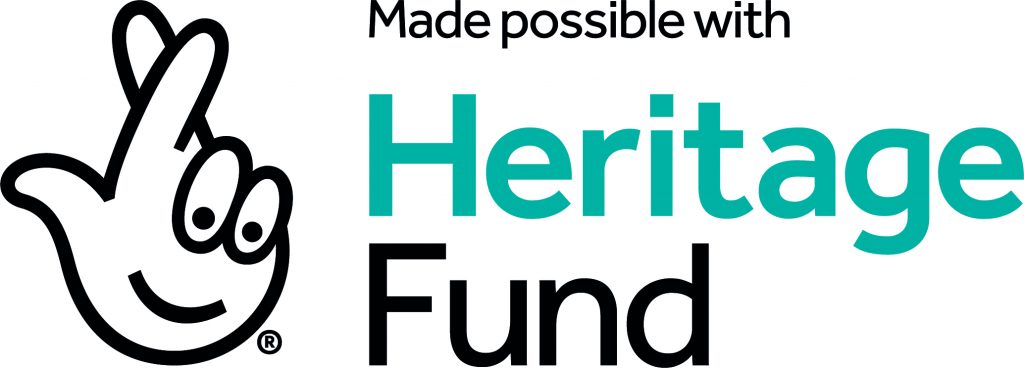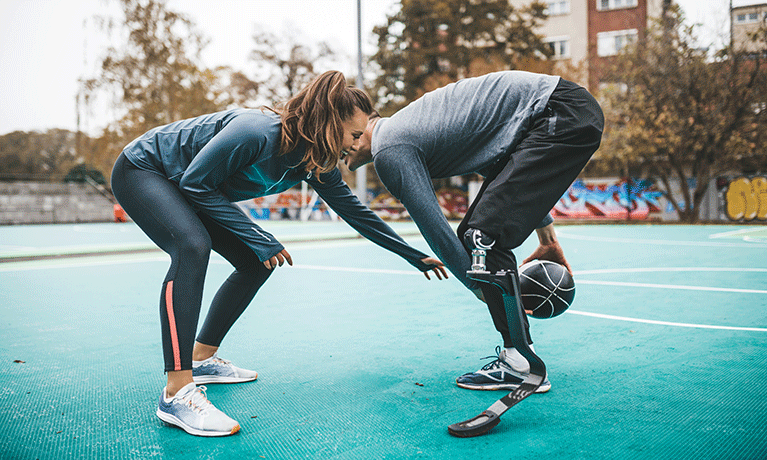By Dr Ian Brittain, Centre for Business in Society
Did you know that 16th November to 16th December 2023 is designated as Disability History Month in the U.K? This is an annual, month-long event that gives disabled people the opportunity to highlight and raise awareness of the issues they have faced throughout history, and to a large extent still face today, in their fight for equality and inclusion within the rest of British society.
Discrimination regarding disabled people is a longstanding social issue[i] and according to Brittain, Duignan and Postlethwaite[ii] has worsened over the last decade. Such discrimination can lead to problems for disabled people accessing numerous areas of society that non-disabled people may take for granted. Examples of where such issues have occurred include education[iii], employment[iv], medical treatment[v], as well as areas of social life such as sport[vi].
Disability History Month aims to challenge the way we view disability, educate people about the history of disability and to celebrate the achievements of disabled people.
Increasing our understanding of disabilities
In line with these aims, the Centre for Business in Society (CBiS) would like to highlight the recent successful grant application to the National Lottery Heritage Fund for £45,708 to carry out a pilot project entitled “Don’t Dis my Ability: Marginalised Voices from Sport”. The project, led by Dr Ian Brittain from CBiS, in collaboration with the National Paralympic Heritage Trust (NPHT), will use trained disabled interviewers to collect oral histories from sixteen British summer and winter Paralympians (1960 to now). Commencing on the 1st November 2023, the ambition of the project is to develop an inclusive interview and engagement format that will increase understanding of disability within British society, and the impact of sport and the Paralympic Games on the lives of disabled people.
Drawing on the existing knowledge of the academic and heritage partners in this project, the aim is to devise and pilot a template for future larger scale work. In doing so, we will draw upon two current Oral History Society trained volunteers from the NPHT, both of whom have disabilities, to be the test project interviewers. In addition, the project will recruit and contract four disabled artists with a range of disabilities and from a range of creative media, to explore potential creative collaborations that can utilise the oral history process, and product, for meaningful community engagement.
The oral histories to be collected are focused on the unique history of the development of Paralympic Movement in Great Britain, from its birthplace in Stoke Mandeville to the present-day successes of the British Paralympic team. Britain has played a leading role in the development of disability sport and it is an inspiring and moving story of international significance[vii]. Many of the early athletes from the 1960s to 1980s are growing elderly and now is the time to ensure we capture their stories in the voices of those who lived through developments.
Changing public attitudes
This task is hugely important because the disability sports journey has had profound effects on the lives of many disabled people and their families. Unpicking and digging deeper into their stories will help reveal exactly how disability sport has changed public attitudes towards disabled people. It is a tale that is still unfolding and one that needs to be captured in order that its impact can be enhanced and better focussed in the future in order to ensure Paralympic legacy aims are more successfully achieved in a sustainable and cost-effective manner. It is also intended that this project is a starting point to a larger scale project aimed at collecting two to three hundred oral histories, the transcripts of which will be made publicly available on the NPHT website.
As well as showing how disability sport has impacted wider society through the eyes of those who made it their careers, the project will capture and tell the story of the prowess, courage and endeavour of hundreds of individual athletes over the 60 plus year history. The UK has continued to play a key leadership role in disability sport, reflected in the phenomenal success of London 2012. However, further attitudinal shift is still required, with disabled people still experiencing societal barriers and discrimination.
The broad aims and potential impacts of the project include:
- The uncovering of new disability sport history that may provide new understandings of its development and impact.
- Greater access to disability sporting history in the voices of those with lived experiences and interviewed by those with lived experience, thus adding both authenticity and greater potential impact to the findings.
- An understanding of the oral history training needs of disabled people to lead this work, so that the process can be replicated and extended into the future.
- The wider involvement of disabled people in heritage management.
- A greater understanding of the needs and support required for disabled oral historian volunteers.
- An understanding of the future approach to a large-scale disability sport oral history project.
- A wider involvement of disability sport federations in the importance and relevance of their history to communities and its value in breaking down negative barriers to disability.
- An understanding of how to effectively utilise disability sport oral history in community and educational engagement through a variety of creative processes developed by the artists.
In this way we hope to make a small contribution to the aims and objectives of Disability History Month.
Through understanding the impact of organisations’ activities, behaviours and policies, the Centre for Business in Society at Coventry University seeks to promote responsibility, to change behaviours, and to achieve better outcomes for economies, societies and the individual.
Dr Ian Brittain’s research project was funded by the National Lottery Heritage Fund, with thanks to National Lottery Players.

[i] Barnes, C. (1991). Disabled People in Britain and Discrimination: A Case for Anti-Discrimination Legislation. London; Hurst & Co.
[ii] Brittain, I., Duignan, M. & Postlethwaite, V. (2022, 27th July). London 2012’s legacy boosted Paralympic sport, but disabled people’s lives have worsened. Retrieved from: https://theconversation.com/london-2012s-legacy-boosted-paralympic-sport-but-disabled-peoples-lives-have-worsened-187298.
[iii] Kitchen, R. & Mulcahy, F. (1999). Disability, Access to Education, and Future Opportunities. Research Report. Retrieved from: http://mural.maynoothuniversity.ie/7225/1/disabilityaccesstoeducandfuureopps.pdf.
[iv] Fevre, R. (2017). Why work is so problematic for people with disabilities and long-term health problems, Occupational Medicine, 67(8), 593–595.
[v] Borsay, A. (2005). Disability and Social Policy in Britain Since 1750: A History of Exclusion, Basingstoke: Palgrave.
[vi] Kiuppis, F. (2018). Inclusion in sport: Disability and participation, Sport in Society, 21(1), 4-21.
[vii] Brittain, I. (2016). The Paralympic Games Explained (Second Edition), Routledge; UK.




Comments are disabled